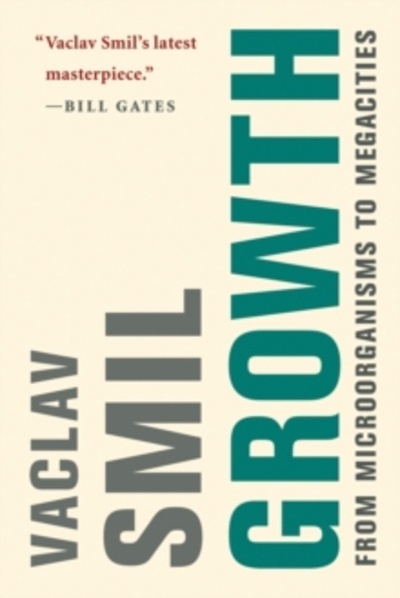Growth : From Microorganisms to Megacities

Editorial MIT Press
Fecha de edición diciembre 2020 · Edición nº 1
Idioma español
EAN 9780262539685
664 páginas
Libro
encuadernado en tapa blanda
Dimensiones 152 mm x 229 mm
Resumen del libro
Growth has been both an unspoken and an explicit aim of our individual and collective striving. It governs the lives of microorganisms and galaxies; it shapes the capabilities of our extraordinarily large brains and the fortunes of our economies. Growth is manifested in annual increments of continental crust, a rising gross domestic product, a child's growth chart, the spread of cancerous cells.
In this magisterial book, Vaclav Smil offers systematic investigation of growth in nature and society, from tiny organisms to the trajectories of empires and civilizations. Smil takes readers from bacterial invasions through animal metabolisms to megacities and the global economy. He begins with organisms whose mature sizes range from microscopic to enormous, looking at disease-causing microbes, the cultivation of staple crops, and human growth from infancy to adulthood.
He examines the growth of energy conversions and man-made objects that enable economic activities-developments that have been essential to civilization. Finally, he looks at growth in complex systems, beginning with the growth of human populations and proceeding to the growth of cities. He considers the challenges of tracing the growth of empires and civilizations, explaining that we can chart the growth of organisms across individual and evolutionary time, but that the progress of societies and economies, not so linear, encompasses both decline and renewal.
The trajectory of modern civilization, driven by competing imperatives of material growth and biospheric limits, Smil tells us, remains uncertain.
Biografía del autor
x{0026}lt;P x{0026}lt;B Vaclav Smilx{0026}lt;/B es profesor emérito de la Universidad de Manitoba, en Winnipeg, Canadá. Es autor de una cuarentena de libros que abordan desde la renovación energética hasta la producción de alimentos, pasando por las innovaciones tecnológicas, los cambios medioambientales y de población, las políticas públicas o las evaluaciones de riesgo. Es miembro de la Royal Society de Canadá y miembro de la Orden de Canadá.x{0026}lt;/P








